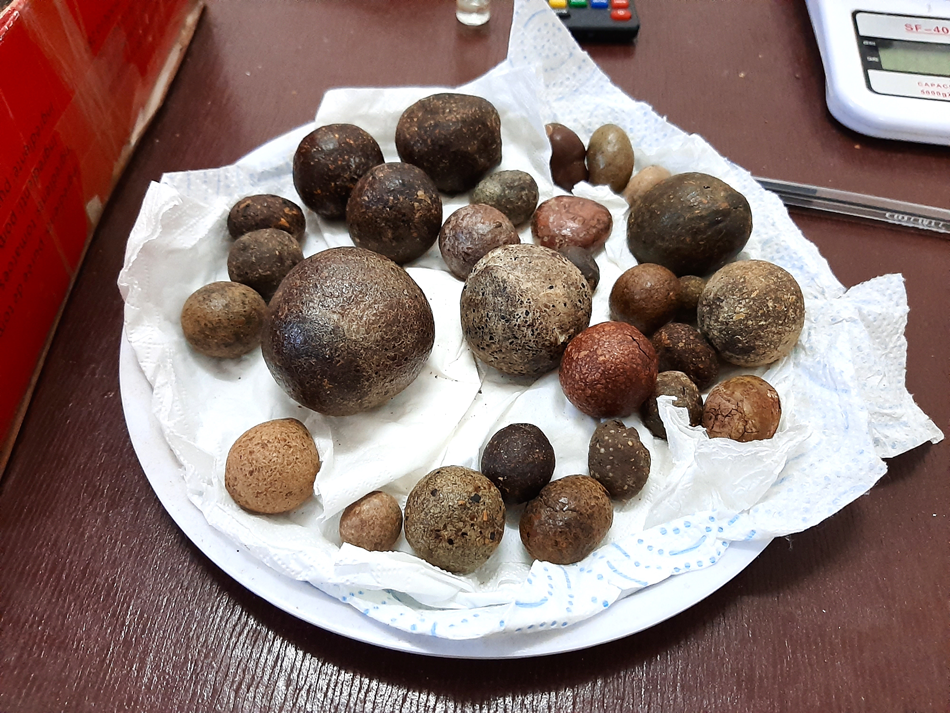We’ve delved into the intriguing world of Porcupine Bezoar in Chinese medicine.
Explore its rich history goodmorningday箭猪枣, traditional uses, and modern scientific findings.
Discover how to spot genuine bezoars and navigate the safety and ethical considerations surrounding this unique remedy.
Join us on a journey through the ancient wisdom and current knowledge of Porcupine Bezoar in Chinese medicine.

History of Porcupine Bezoar
The historical significance of porcupine bezoars in Chinese medicine dates back centuries, playing a crucial role in traditional remedies and treatments. These mysterious formations found in the digestive systems of porcupines were highly valued for their supposed medicinal properties.
People believed that porcupine bezoars could cure various ailments, including poisoning and fever https://goodmorning.day/. The demand for these bezoars led to their extensive use in ancient Chinese medicine, with practitioners incorporating them into potions and remedies.
Despite modern advancements and skepticism, the tradition of using porcupine bezoars continues in some circles today. Understanding the history of porcupine bezoars sheds light on the deep-rooted traditions and beliefs that have shaped Chinese medicine for generations.
Traditional Uses in Chinese Medicine
Exploring the traditional applications of porcupine bezoars in Chinese medicine reveals their enduring significance in ancient healing practices.
In Chinese medicine, porcupine bezoars are believed to possess potent healing properties and have been used for centuries to treat various ailments. These concretions are often ground into powder form and consumed orally or brewed into teas.
They’re commonly utilized to alleviate stomach issues, reduce fever, and boost overall vitality. Additionally, porcupine bezoars are highly valued for their purported ability to detoxify the body, improve blood circulation, and enhance immune function.
Despite advancements in modern medicine, the traditional use of porcupine bezoars in Chinese medicine continues to be cherished by those seeking natural remedies for health and wellness.
Scientific Research and Findings
Through our investigations, we’ve uncovered compelling scientific research and findings regarding the efficacy of porcupine bezoars in Chinese medicine. Studies suggest that porcupine bezoars contain bioactive compounds with potential antioxidant and anti-inflammatory properties. These properties could contribute to their reported effectiveness in treating various ailments.
Additionally, research indicates that porcupine bezoars may possess antimicrobial properties, supporting their traditional use in fighting infections. Studies have also shown that porcupine bezoars could have gastroprotective effects, potentially aiding in digestive health.
While further research is needed to fully understand the mechanisms behind these effects, the existing scientific evidence provides promising insights into the potential benefits of porcupine bezoars in Chinese medicine.

How to Identify Genuine Bezoars
As we delve deeper into our exploration of porcupine bezoar Chinese medicine, it’s essential to understand how to identify genuine bezoars to ensure their efficacy in traditional remedies.
Genuine bezoars are characterized by their unique texture, which is hard and stony, often with a rough surface. When dissolved in liquid, they release a distinct fragrance that sets them apart from counterfeit alternatives. Additionally, genuine bezoars are usually irregular in shape, with a dark coloration ranging from brown to black.
It’s crucial to source these bezoars from reputable suppliers to guarantee their authenticity and maximize their healing properties. By being vigilant and knowledgeable about the characteristics of genuine bezoars, we can confidently incorporate them into our traditional medicinal practices.
Safety and Ethical Considerations
Understanding the safety and ethical considerations surrounding the sourcing and use of porcupine bezoars is paramount in ensuring their efficacy and sustainability in traditional medicine. It’s crucial to prioritize the well-being of both the wildlife populations and the individuals using these remedies.
By ensuring that porcupine bezoars are ethically sourced through sustainable practices, we can help protect these unique animals from exploitation and support their conservation. Additionally, safety measures must be in place to guarantee that the use of porcupine bezoars in Chinese medicine doesn’t pose any risks to human health.
Conclusion
Overall, porcupine bezoars have a long history in Chinese medicine and have been used for various health benefits.
While scientific research is ongoing to validate their effectiveness, it’s important to ensure that genuine bezoars are used and to consider safety and ethical concerns.
By understanding the traditional uses and potential benefits of porcupine bezoars, individuals can make informed decisions about incorporating them into their health and wellness routines.
